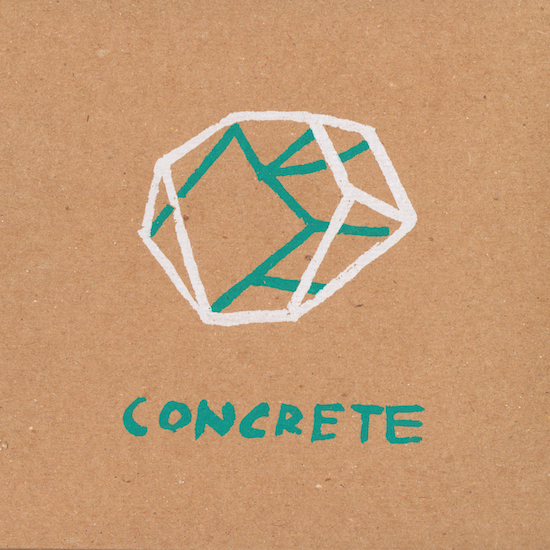To describe an album as a soundtrack to an imaginary film is now not only a cliché, it’s pretty much redundant. One suspects at this remove that the phrase was only ever invented in order to get 80s indie kids to listen to jazz, and if so, job well done; but in 2015 most discerning music fans are perfectly at home with complex instrumental pieces, and don’t need to pretend it’s the score to some obscure Eastern European spy flick in order to enjoy it.
Nevertheless, one can’t help conjuring up visual images and evocative credit sequences in the mind’s eye when listening to Marcus Hamblett’s Concrete. Not that Hamblett – also of Brighton folk-jazz freakniks Sons Of Noel and Adrian, and a rootsy session player of some repute – ever claims that this was made to accompany a film, imaginary or otherwise. He does however cite Italian composers Ennio Morricone and Bruno Nicolai as influences, both best known for their film work, and fellow Giallo scorers Goblin certainly lurk uneasily in the background, as well as those from further afield.
For instance, on ‘Nocturne’ the rolling drums and exquisite tensions hint at the modernist, jazz-based work of Krzysztof Komeda; halfway through the drums drop away to expose a guitar in a mood-swinging monologue, argumentative one moment and ecstatic the next, with the free-spirited exploration of Six Organs Of Admittance’s Ben Chasny building to some impressive Richard Thompson-like trills, runs and flourishes. ‘Skeleton Key’ sounds almost like a duet for guitar and photocopier, or some other primitive, groaning machine geared to repetition, and the combination of mid-century industrial noise and sleek, near-pastoral electric guitar summons the spirit of Basil Kirchin, perhaps working with Big Jim Sullivan on a commission for the atomic energy marketing board in 1963 – "a brighter future today!" The notion is reinforced when Thomas Heather’s carefully modulated drums return, and double bass and jutting trumpet suggest a turtlenecked jazz trio intent on putting the ‘cellar’ back in Sellafield.
By ‘Three Four’, a moody duet for Moog and harpsichord (or close analogues) we’re back in deep Giallo soundtrack territory, a long tracking shot taking us lazily across lush gardens, through an open arched doorway, down a wrought-iron spiral staircase and along some very loudly patterned carpet for what seems like an eternity before we notice the vivid red of the blood pooling around the neatly bisected, big-haired female corpse. That’s when Emma Gatrill’s soft, wordless vocals drift in, Edda Dell’Orso like, and Heather’s rolling toms subtly lift the piece to another level. It’s a gorgeous centrepiece to the CD, equal to similar homages by Broadcast without seeming contrived or third-hand. For one thing it’s obvious that Hamblett knows his sources intimately well; for another, the playing sounds organic and natural, the work of consummate musicians playing off each other rather than a tossed-off pastiche coldly constructed on a laptop.
‘Augmented’ showcases Hamblett’s guitar chops in a setting that could be called post-rock if it didn’t also sound pre-rock, or maybe as if rock had never happened and folk, modern jazz and the classical avant-garde had merged into a stream of hip, innovative music to soundtrack the changes and discontents of the second half of the twentieth century instead, and Joe Meek had dug John Cage. The album ends with the ten-and-a-half minute ‘Stony Ground’, a haunted journey through the rustic undergrowth somewhat in the manner of the Lowland Hundred, with mumbled vocals soaking through thickly thatched guitar work until it all builds to a glorious pagan sunrise. Cathy Cardin calls forth the dawn like some Sussex siren high on the Downs, facing out to sea as the mist rapidly recedes.
Ultimately, Concrete is less the soundtrack to one imaginary film and more the soundtrack to at least half-a-dozen: mutable projections you can recast and rearrange each time you screen them, with eyes closed, and ears open wide.
<div class="fb-comments" data-href="http://thequietus.com/articles/17754-marcus-hamblett-concrete-review” data-width="550">


